venezuela
Latest
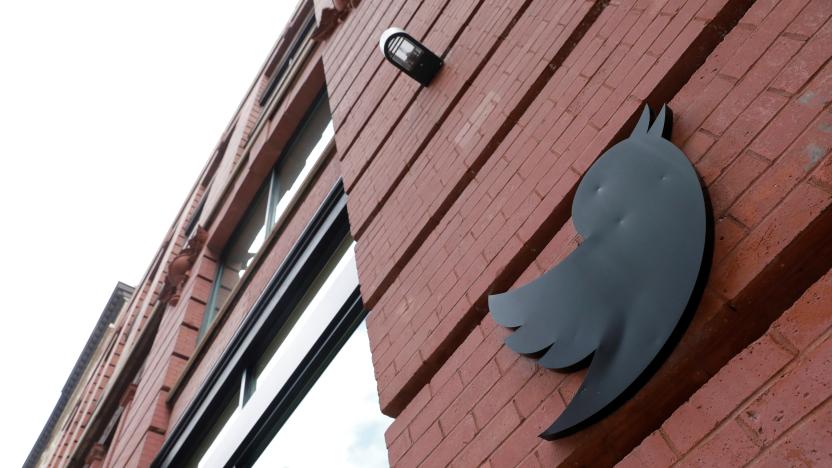
Twitter removed thousands more Chinese propaganda accounts
The company recently shut down another 3,465 accounts linked to state information campaigns.
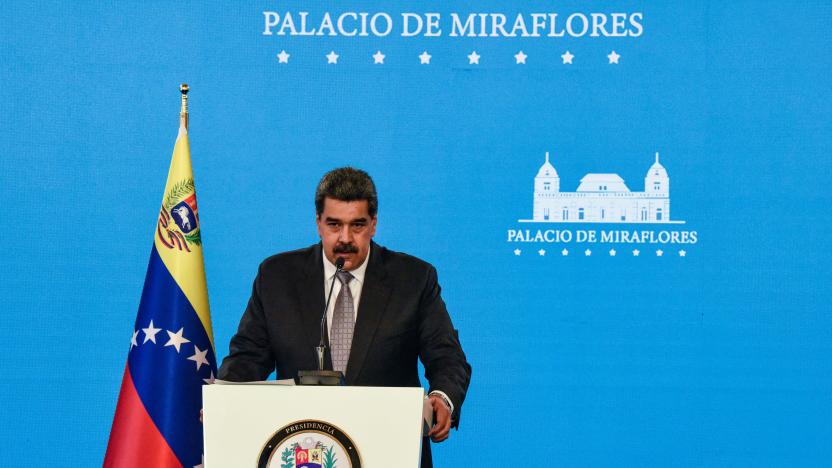
Facebook freezes Venezuela president's page over false COVID-19 claims
Facebook has frozen the page of Venezuela president Maduro for a month for posting COVID-19 misinformation.

Adobe won't ban Venezuelans from using its products after all
Earlier this month, Adobe announced it would ban Venezuelan users from its products due to U.S. Executive Order 13884. Now, the company says it has received a license which allows it to keep providing its services in the country.
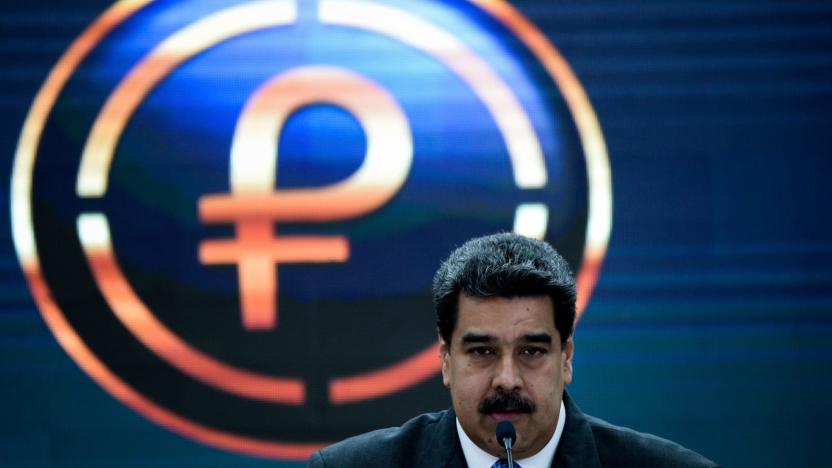
Venezuela reportedly wants its central bank to hold bitcoin
Venezuela may not just be using its own cryptocurrency to dodge the consequences of international sanctions. Bloomberg tipsters say the country's central bank is testing the possibility of holding on to cryptocurrencies in order to help the state-controlled oil company Petroleos de Venezuela SA. The firm reportedly has troves of bitcoin and ethereum, and moving that money to the central bank might let it pay suppliers and avoid "potential blocks" from conventional channels that would come with either direct crypto payments or regular money.
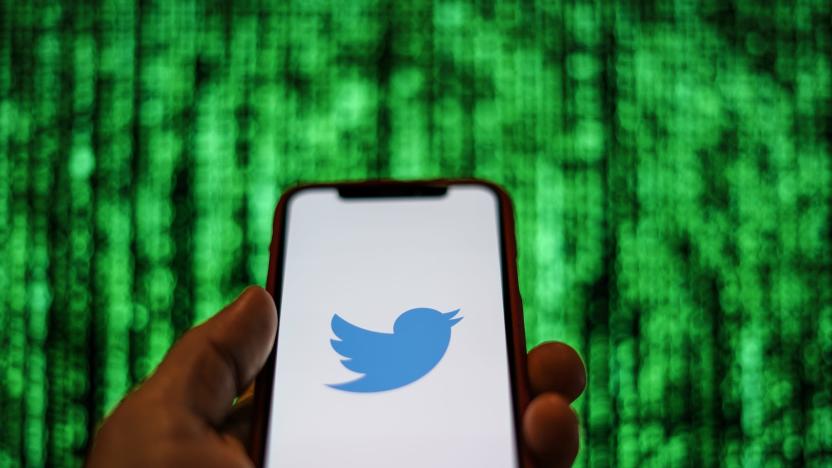
Twitter removes nearly 4,800 accounts linked to Iranian government
Twitter has suspended nearly 4,800 accounts it suspected of being directly run or linked to the Iranian government. The social media giant released a transparency report that detailed recent efforts to tamp down on the spread of misinformation by insidious actors on its platform. In addition to the Iranian accounts, Twitter suspended four accounts it suspected of being linked to Russia's Internet Research Agency (IRA), 130 fake accounts associated with the Catalan independence movement in Spain and 33 accounts operated by a commercial entity in Venezuela.
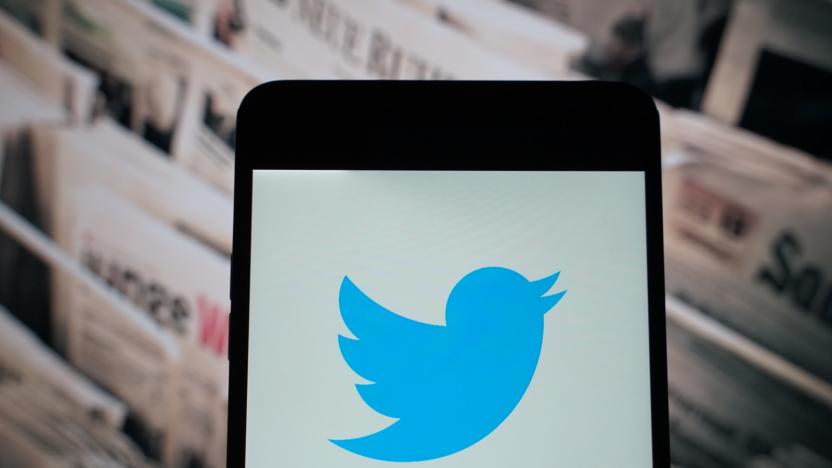
Twitter banned 2,600 Iran-linked accounts for election meddling
Since September, Twitter has suspended 2,617 accounts linked to Iran, it said in a report on its US midterm election efforts. Some of the accounts claimed they were American news outlets and discussed US political and social issues. Twitter claims it proactively suspended most of the accounts prior to Election Day.

Venezuela says Maduro was target of attempted drone attack (updated)
Venezuela President Nicolas Maduro may be the first major leader to have faced a drone-based assassination attempt. Information Minister Jorge Rodriguez claimed that at least one bomb-laden drone had exploded close to Maduro while he was giving a speech at a Caracas event on August 4th. The authoritarian leader was unhurt in the incident, but seven National Guard soldiers were reportedly injured. Video from state TV showed Maduro and officials looking up in a moment of panic before the camera cut away, with the assembled troops running soon afterward.
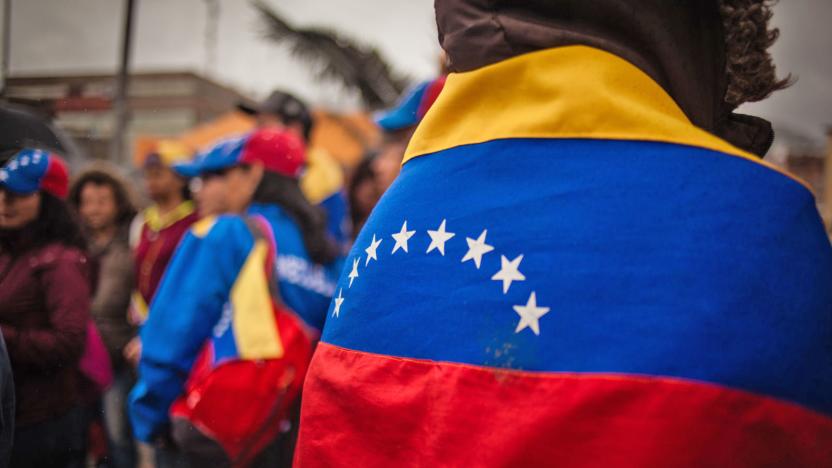
Venezuela's largest ISP blocks Tor
Venezuelans have been relying on tools like Tor to access news sources, including local outlets like El Nacional and international ones like CNN en Español, after the government banned them in the country. Unfortunately, they're going to have to work a little bit harder to circumvent government censorship -- according to a report by human rights non-profit group Access Now, the largest ISP in the country, which just happened to be owned by the government, has blocked the software. Previously, people could simply change their DNS to access censored information online, but using Tor or VPN has become a necessity to get around the most recent bans.

Trump bans Venezuelan cryptocurrency in the US
Back in December, President Maduro of Venezuela tried something new to outmaneuver his country's economic disarray and sanctions imposed by the US and other nations: Invent a new cryptocurrency. The 'petro,' as it's called, would be supported by the country's natural resources -- specifically, that each token would be backed by a barrel of oil. Whether or not it was on track to help stabilize Venezuela, Trump just issued an executive order banning use of the currency within the United States.
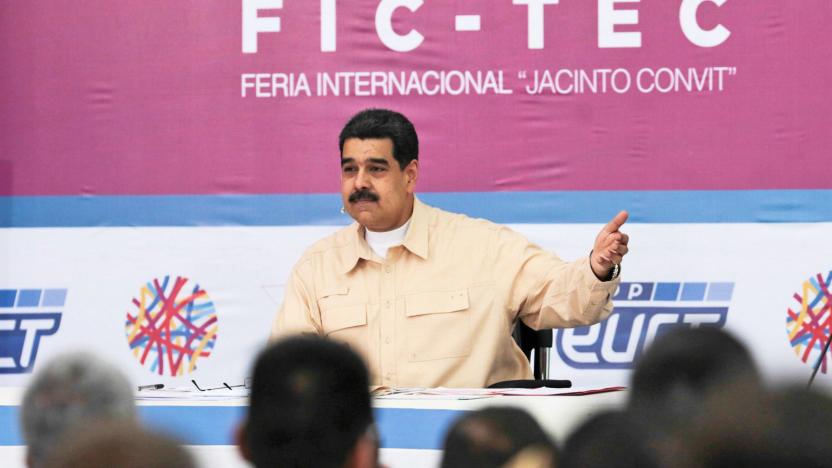
Venezuela will start its own digital currency to beat sanctions
The authoritarian streak of Venezuela's recent leaders has cost the country dearly. Mismanagement and sanctions have crippled its infrastructure, its money is increasingly worthless and the public is fuming. President Maduro thinks he has a solution, though: creating the country's own cryptocurrency. The "petro" will be backed by Venezuela's key natural resources (diamonds, gas, gold and oil) and, in theory, will help it get around the "financial blockade" imposed by the US and other nations.
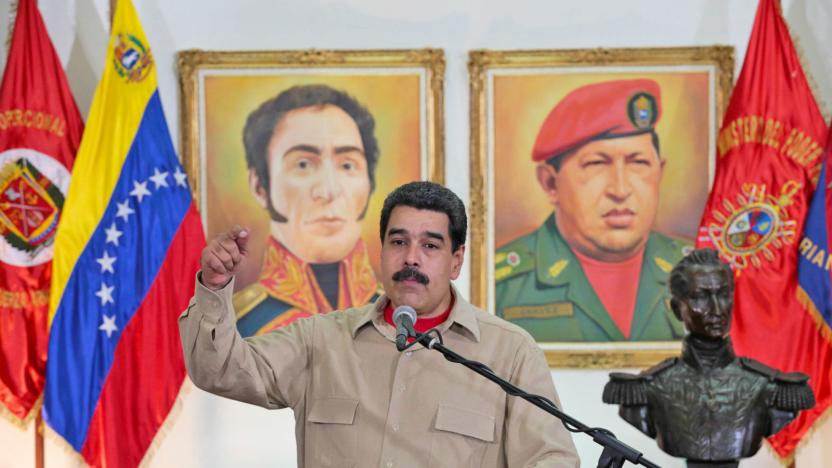
Twitter blocks a slew of Venezuela government accounts
Venezuela has been accused of censoring Twitter as part of its bid to silence dissent, but it's not so happy now that the shoe is on the other foot. The country's leadership says that Twitter has suspended 180 accounts linked to the government, including radio and TV outlets in the presidential palace. While it's not clear what prompted the move, officials are furious -- President Maduro claims that Twitter blocked accounts "simply for being Chavistas," or supporters of his late predecessor Hugo Chavez.
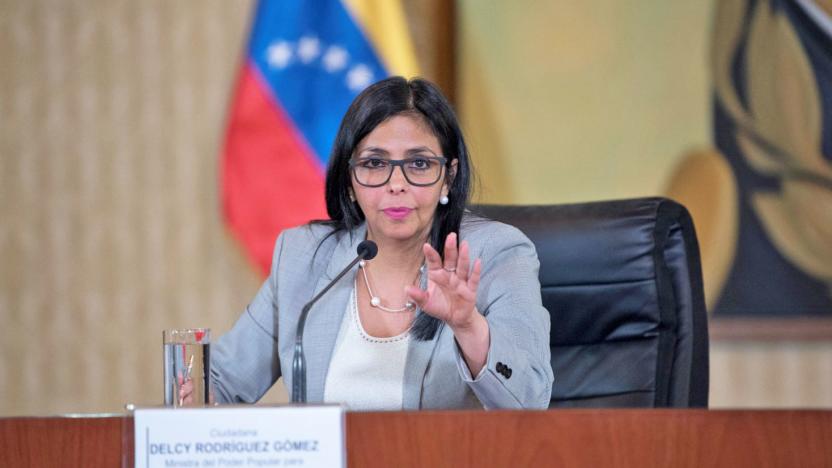
CNN broadcasts on YouTube after TV ban in Venezuela
Earlier today, the Venezuelan government cut CNN en Español's signal, shutting off its television broadcasting in the country shortly after it aired a report on fake passports. Not to be deterred, the news network has taken its programming to YouTube and posted links to news reports on its Spanish-language site. Apparently, the Venezuelan government doesn't know that you can't stop the livestreaming signal.

Twitter claims Venezuela is blocking its images to stifle protests
Venezuela's government has been trying to silence protests over shortages of basic goods, and that crackdown appears to be extending into the digital realm as well. A Twitter spokesperson tells Engadget and Bloomberg that pictures on its social network are "currently blocked" for at least some users. The country hasn't confirmed anything, but President Nicolas Maduro has already taken a TV station off the air after it showed unflattering protest footage (pictured here); this may be just a continuation of his policy. Whatever is taking place, Twitter is encouraging Venezuelans to sign up for text message updates to keep the news flowing. And locals can take comfort in knowing that government attempts to censor online content aren't always effective at crushing dissent -- if there's enough demand for political change, it can happen. [Image credit: Eduardo Massieu / NTN24, Twitter]

Books come to Google Play in five South American countries
Google Play Books' expansion tour has just made an important stop in South America. As of today, bookworms in Argentina, Chile, Colombia, Peru and Venezuela can browse Google's virtual shelves from Android, iOS or the web. The wider access sadly doesn't include movies, music or periodicals, but locals who want to read up on everything from Machu Picchu to Medellin should be happy.

Firefox OS arrives in Latin America on Movistar network
To date, Firefox OS has only had a presence in Europe. Now, it's now venturing overseas to Latin America with a launch on Movistar. Both Colombians and Venezuelans can buy the Alcatel OneTouch Fire and ZTE Open from the carrier today. Whether or not the phones represent bargains will depend on the country, however. Venezuelans wanting the OneTouch Fire and Open will have to buy them at steep respective prices of 1,739BEF ($277) and 1,159BEF ($184) on contract, while Colombians can buy either device for 199,900 pesos ($106) prepaid or 99,900 pesos ($53) on a one-year agreement. We're still months away from the release of Firefox OS phones in the US, but the Latin American launch at least gets us one step closer.

Over 100 internet centers open in Cuba, prove time really is money
When you're reading angry tweets about dropping to 3G in an LTE dead zone, it's easy to forget that for some people, getting online isn't even an option. In Cuba, internet access is extremely limited and out of financial reach for most, but news early this year of an undersea cable to Venezuela suggested the country might, with time, become better connected. As it turns out, that link has already made something of an impact, as the Associated Press is reporting that 118 government-run centers where one can swap cash for web time have just opened. That doesn't mean all Cubans will be able to while away hours on YouTube from now on, though, as the cost of full access at one of these centers is $4.50 per hour, or in other words, roughly a quarter of the average monthly wage (AP pegs a typical salary at around $20 per month). We guess really expensive internet is better than none, and if Cuba's vice minister of communications Wilfredo Gonzalez is to be believed, mobile internet is said to be arriving in "a relatively near future." [Image credit: Franklin Reyes, Associated Press]

Cuba confirms Alba-1 fiber hook-up to Venezuela, internet remains on lockdown
Cuba may only be positioned 100 or so miles from Key West, but the US embargo meant an undersea fiber link to North America hasn't been a possibility. Earlier this week, though, we began to see discussion regarding traffic passing through a connection to Venezuela, and ETECSA, a government-owned telecom provider, has now confirmed that a 994-mile cable has been operational since August, though in a limited capacity. On January 10th, ETECSA stepped up its utilization, testing the connection using "real traffic." The $70-million Alba-1 cable, which has a reported lifespan of 25 years, was completed in February 2011, though it's not clear when, or if, citizens will see any benefit -- a statement explained that it "will not automatically mean an increase in access." That's not great news for Cubans, but at least Hugo Chavez now has the possibility of a direct link to his home country -- with a Netflix subscription and a VPN tunnel to the good ole US of A, his recovery could be a little more speedy.

iTunes in the Cloud movies find their way to Australia, Canada, the UK and 32 more countries
The advent of movie support in iTunes for the Cloud was a boon to Apple TV owners as well as any iTunes user with a tendency to hop between devices -- within the US, that is. Apple today swung the doors open and let Australia, Canada, the UK as well as 32 other countries and regions around the world get access to their movies whenever they're signed in through iTunes or an iOS device. Not every studio is on the same page, as many American viewers will know all too well: it's more likely that you'll get re-download rights for a major studio title such as Lockout than an indie production, for example. Even with that limit in mind, there's no doubt more than a few movie mavens glad to avoid shuffling and re-syncing that copy of Scott Pilgrim to watch it through to the end.

Web Marketplace for Windows Phone gets 22 more stamps in its passport
If you've been holed up in Thailand, waiting to browse the latest and greatest apps for your Windows Phone in your browser instead of on the device directly, then things are looking up. Microsoft has just announced that 22 new countries are being graces with their own web Marketplace. The full list covers Bulgaria, Costa Rica, Croatia, Estonia, Iceland, Latvia, Lithuania, Romania, Slovakia, Slovenia, Turkey, Ukraine, Venezuela, UAE, Bahrain, Iraq, Saudi Arabia, Qatar, Kazakhstan, Israel, Thailand, and Vietnam. The same blog post advises that work is also underway to improve the search results delivered by the site. So you might not have to play Hungry Birds for much longer.

New iPad launching in 21 additional countries this month
Apple today issued a press release announcing the new third-generation iPad will go on sale in another twleve countries starting on Friday, April 20. Notably, one of the twelve is the important South Korean market. The other eleven countries include Brunei, Croatia, Cyprus, Dominican Republic, El Salvador, Guatemala, Malaysia, Panama, St Maarten, Uruguay and Venezuela. Then one week later on Friday, April 27, Apple will begin selling the new iPad in an additional nine countries: Colombia, Estonia, India, Israel, Latvia, Lithuania, Montenegro, South Africa and Thailand. Both the Wi-Fi and 4G models will be on sale and available through Apple's online store and at select Apple Authorized Resellers. The new iPad will be available in 56 countries around the world as of April 27th.









